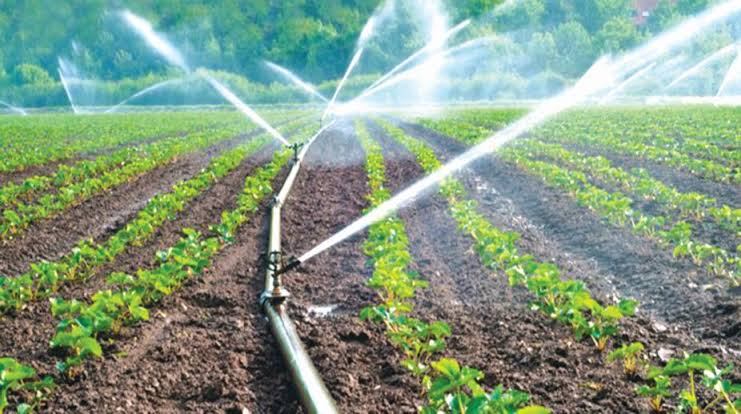The Federal Ministry of Water Resources on Tuesday in Sokoto reiterated Federal Government’s commitment to explore all irrigation areas for economic development.
The assurance was given by Mrs Esther Oluniyi, Director Irrigation and Drainages in the ministry.
She was declaring open a four-day consultative meeting on Transforming Irrigation Management in Nigeria (TRIMING) project, on behalf of Mr Suleiman Adamu, Minister of Water Resources.
She said the ministry had used TRIMING to provide technical assistance to train farmers, farmers associations and River Basins Development Authorities (RBDAs) personnel for effective operation and maintenance of irrigation systems.
Oluniyi said the technical assistance was part of the transformation efforts to strengthen the system.
The technical assistance was designed to promote participatory irrigation management by empowering farming communities around TRIMING Project irrigation schemes.
It was also designed to encourage operators to assume responsibility for ownership of irrigation and drainage systems for improved financial gain, she said.
Oluniyi added that farmers on their own could identify works needed for routine maintenance, repairs and minor rehabilitation requirements of irrigation and drainage system under their care.
“What is expected of RBDAs is to ensure that farmers and their associations take their new responsibilities with steady grip, keeping the canals, drains, roads, culverts and other structures in top working conditions,’’ she said.
She appealed to stakeholders in the transformation course to exert maximum efforts in supporting the processes to ensure success.
In his presentation, the TRIMING Project Coordinator, Mr Peter Manjuk, called on farmers to take ownership of all irrigation projects to enable Nigeria to meet its food sufficiency targets.
Manjuk emphasised the need for the country to reduce its dependence on rain-fed agriculture adding that as its population expanded, deliberate efforts should be made to revamp RBDAs.
The project coordinator said that the RBDAs would serve as the vehicles for the socio-economic development of the nation.
According to him, Nigeria must get it right, if it must meet its food production and food security demands.
He expressed regret that huge investments in dams and irrigation projects had yet to achieve any meaningful socio-economic impact on the citizenry.
“Nigeria’s population is a fast growing; in order to ensure food sufficiency and food security, we cannot continue with rain-fed agriculture which has characterised our agricultural practice.
“The contribution of irrigated agriculture has been very little and with our fast growing population, we cannot sustain ourselves in terms of food sufficiency and food security.
“We must revamp our irrigated agricultural practice and make it work in order to support our population and even to allow us to export produce.
“That is why we are calling on all farmers benefiting from the TRIMING programme to take ownership of these projects; government alone cannot do it,’’ he stressed.
Manjuk said that TRIMING was an intervention designed to transform irrigation management and practice so as to boost access to irrigated lands, while providing institutional arrangements to manage and operate the systems.
He said that Nigeria could not continue to rely on old methods and expect benefits from the river basins.
The project coordinator said that deliberate interventions were needed to restructure the operations of the river basins development authorities and tackle the problems that had kept them grounded over the years.
He explained that the TRIMING would rehabilitate dilapidated irrigation schemes and expand them where possible; it would also address and improve the institutional arrangements in line with global best practices.
TRIMING is supported by the World Bank for the improvement of the management of irrigation systems via five schemes executed in five states in the northern part of Nigeria.
The schemes are the Bakalori Irrigation Scheme in Zamfara, Middle Rima Valley Irrigation Scheme in Sokoto State and Kano River Irrigation Scheme in Kano State.
Others are the Hadejia Valley Irrigation Scheme in Jigawa and Dadin Kowa Irrigation Scheme in Gombe State.


 Business7 days ago
Business7 days ago
 Football22 hours ago
Football22 hours ago
 Business7 days ago
Business7 days ago
 Education7 days ago
Education7 days ago
 Crime7 days ago
Crime7 days ago
 Covid-197 days ago
Covid-197 days ago
 Business7 days ago
Business7 days ago
 Latest5 days ago
Latest5 days ago
